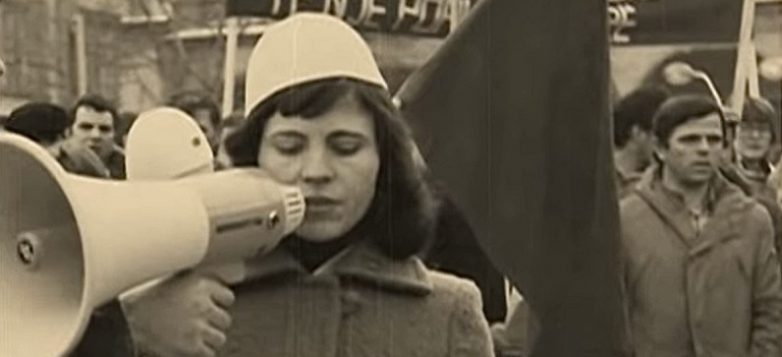It was sometime around 10:00 when Ibrahim Kelmendi called me. He asked, ‘Did Kadri come back?’ I said, ‘No, he didn’t come back.’ Of course Kadri would come back that night because it was Sunday and he had to work on Monday. He didn’t come back. […] They didn’t have a phone at home, the Gërvalla brothers, so they would go out to call from a payphone at the time. On their way out it happened because they were ambushed. They waited. They just wanted these three to come together and to kill them. That was UDB’s task. […] And then, Ibrahim Kelmendi called again and Hasan Mala picked up the phone. He said, ‘I want to let you know,’ he said, ‘that there was an assassination in Germany. Kadri Zeka,’ he said, ‘Kadri is dead,’ I heard that because it was, the night was quiet. I heard that. It was not known about the other two yet, because [it was thought that] Jusuf was wounded. […] When we got there Jusuf’s wife came out and said, ‘Come on young bride,’ I was recently married, not even two weeks. She said, ‘Come on bride, three dead.’ It was a bomb. Despite that the pain was great for Kadri, but at least if someone survived, it was very difficult. So that was it. And then, the people there, fellow Albanians all stood up because they were, how to put it, the heads, their leaders. It was a, a shock for everyone. Everyone came to me for condolences, for material help. They tried to return them to Kosovo, but there was no way, the embassy did not allow it. So, the burial took place after three weeks, so to say, in Germany, because they didn’t allow us to return them and so on.
Saime Isufi was born in 1958, in Gjyrishec, Municipality of Kamenica. She studied Albanian Language and Literature at the University of Pristina and she graduated from the University of Tirana, in 1992. After the 1981 demonstrations, as a political activist within the underground movement, Mrs. Isufi moved to Switzerland, where she was granted political asylum. She was the leader of the Movement for the Albanian Republic in Yugoslavia from 1982, as well as founder of the women’s association Drenica in 1998. From 1990, she was actively engaged for 26 years in organizing extracurricular lessons for Albanian children in Switzerland. She still currently works and lives with her family in Switzerland.
